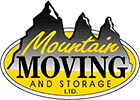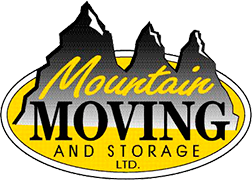1 (800) 737-9912
We'll Move Mountains for You!
We'll Move Mountains for You!
 Moving FAQs
Moving FAQs
Q: How can I be sure that the mover I select is professional, honest and will care for my belongings?
A: The most important step in choosing a mover is to ask the right questions and listen carefully to the answers. Just about everyone knows of someone with a moving day horror story. There have even been entire network news specials on movers. The truth is that by and large most moving companies are very reputable and conscientious organizations. Try to get references – ask if they are members of the Better Business Bureau or the Canadian Association of Movers.
Q: When should I call a moving company?
A: The earlier, the better. Although short notice moves can usually by managed, its wise to give your moving company from four to six week’s notice, if possible. The more lead time you can give, the more likely we will be able to meet your preferred delivery schedule. You should discuss your specific pickup and delivery requirements with your sales associate.
Q: Do I need an estimate?
A: Pre-move estimate are needed to determine the cost of a move and the amount of van space your goods will occupy. The estimate can often be based on a telephone survey but keep in mind the accuracy of the estimate is based on the accuracy of the information provided. There is no charge for the estimate. On inter-provincial shipments, the total charges are determined by the size of your shipment, the distance it travels, and the services that you authorize or which become necessary to handle your shipment. Charges for local shipments are generally calculated on an hourly basis. There may be a minimum number of hours required.
Q: How and when should I pay?
A: A deposit is required at the time of booking. Most movers require that all charges be paid in full before your shipment is unloaded at destination (unless prior arrangements have been made for later billing). Payment for your shipment can be made by one of the following methods: Cash, American Express® Card, Visa® or MasterCard®. Personal checks are not accepted for long distance moves. If storage at destination (storage-in-transit) is necessary, all transportation charges must be paid at time of delivery of the shipment to the warehouse.
Q: Can I use any kind of carton or box when I pack my things?
A: No. Cartons used for packing must meet the carrier’s minimum requirements. It is always best to use cartons supplied by your mover. These cartons are specifically made for our industry and come in a variety of sizes for different packing needs.
Q: What can I do to keep costs down during my move?
A: If you’re engaging professional movers, you should mention your cost concerns during your initial call with a sales person. Similar to airlines or hotels, most moving companies have a sliding scale of prices that reflect supply and demand on a particular day. Generally, the summer months are the busiest. Saturdays and the beginning and end of each month are busy year-round. The less busy times tend to be Monday through Thursday in the middle weeks of the month. If you are flexible with your move date-an overlap between when you need to be out of your old home and are able to get into your new home helps- you’re certain to get the best value. Additionally, your sales person can provide advice on other cost-saving measures, including efficient preparation in advance of moving day.
Q: Can I keep costs down by having a family member or friend help with the move?
A: Absolutely. Having your friends move you in a rented truck is certainly the lowest-cost option-assuming nothing is broken. If items are damaged, it’s generally difficult to get an insurance carrier to replace them. If you choose to hire professional movers, your friends can be most helpful in preparing for the move–packing boxes, shoveling a pathway in the snow between the moving truck and the door, or caring for your pets or children. On moving day, you should let the professionals handle the job entirely, they are highly trained and therefore best suited to carry the weight and negotiate the difficult access ways. Remember that you’re paying your moving crew by the hour, and generally speaking, having non-professionals on the job alongside them only slows things down and costs you more in the long run.
Q: How is the cost estimate determined on a local move?
A: To determine the approximate cost of your move, as well as the space needed on the van for your household goods, an agency sales representative will conduct a household goods survey in your home. Tour your house before the agent arrives. Check from attic to basement and determine what will be moved and what will be discarded. Show the representative EVERYTHING you will be moving, specifying any items off-premises or other items to be added later. The representative then will compute the approximate cost of your move and give you a written “estimated cost of service”. Click Here to fill out our easy online estimate form or call us today at 1-800-737-9912. Most moving companies base their estimates for local moves on an hourly rate, which includes drive time from the moving company to your original home to your destination and back again to the moving company’s home base. Some customers are surprised by the extent of the drive time costs, which result from the fact that moving trucks can not travel as fast as passenger cars on the highway, and are often excluded from non-truck routes, resulting in longer trip mileage and travel time.
Q: Is labor the only moving cost I will experience?
A: Labor represents the majority of the moving expense. However, you should also budget for packing supplies-boxes, tape, bubble wrap, pads, etc. Generally speaking, moving supplies can run approximately 20% of your labor costs. Click Here to view our own Packing Supplies page.
Q: How accurate will the cost estimate for my move be?
A: Most moving companies’ estimates are non-binding. This means the actual cost may vary a little or a lot from the original estimate. The best way to ensure that your move comes in on-target with your estimate is to offer as much information as possible at the time of the estimate. Since costs are projected based on an hourly rate, neglecting to mention an ancillary piece of the move at the time of the estimate does not mean that your move will cost less, but rather that your moving crew will be less prepared to do it. They may show up with fewer movers or trucks or equipment than they would have brought had they known up front what the situation would require, which may in the end escalate costs. Because you’re paying by the hour, if the move takes less time than was estimated, your actual bill will be reduced accordingly.
Q: Should I tip my movers?
A: Moving is a service industry. While there is not a set amount of gratuity expected by movers as there is by servers in restaurants, for example, if you feel that the job was done efficiently and effectively, you should feel free to tip your movers accordingly.
Q: Am I protected against loss or damage while my goods are in transit?
A: Yes, but how much protection you have and its cost to you depend upon the “valuation” program you choose — Replacement Cost, Repair Value, or Released Rate Liability. The valuation option you select determines the basis upon which any claim will be adjusted and establishes the maximum liability. Valuation is not insurance; it is simply a level of motor carrier liability. The specific cost and terms of available coverage should be discussed with your sales associate prior to the move.
Q: If I’ve hired the “professionals,” is there any point in purchasing moving insurance?
A: Your belongings should be insured during the move against any unforeseen circumstances. Check with your homeowner’s policy. If your insurance provider does not cover items while in transit or in someone else’s vehicle, or if they only cover against major disasters versus minor damage to individual items, you should definitely purchase moving insurance from your moving company. Without insurance, moving companies are only liable to cover your goods for 60 cents per pound. As for the amount of coverage you should purchase, most moving companies insure the goods as a whole, and don’t insure individual items. Therefore, you should consider the total value of your goods and purchase enough insurance to cover all of the contents of your home.
Q: What is Valuation?
A: People often confuse the term “valuation” with “insurance.” Moving companies do not sell insurance. There are common laws of bailment which apply to the transportation of freight, including household goods. Basically stated, a motor carrier or van line is liable for the loss or damage of the goods they transport. Consequently, freight charges are based on the value of the property being transported. The higher the value of the cargo, the more the carrier charges to transport. Most commodities can easily be valued, such as a truckload of new washing machines, or a truckload of dirt. Household goods, on the other hand, consist of various items of different values, which differs from one customer to customer. Because of this, each customer must declare a valuation of their property prior to the shipment of the goods. An additional charge, called the valuation charge, is then added to the base transportation cost of the shipment.
Q: Do you have storage available?
A: If you are unable to take immediate possession of your new residence, your belongings can be stored. However, you are responsible for the storage charges, and final delivery charges from the warehouse. If your goods are placed in storage, there may be an additional charge for the valuation or insurance coverage provided for your shipment while in storage. Long-term storage services are also available. Please ask your sales associate for information regarding storage arrangements.
Q: What are considered Hazardous Materials and shouldnt be packed?
A: Some of the materials most common to household use are indicated below. Please contact your mover if you have any questions.
COMBUSTABLE LIQUIDS: Rubbing Alcohol, Lubricants (Motor Oils), Anti-Freeze Compounds.
CORROSIVES: Acids, Drain Cleaner, Photographic Acids used in developing film, Bleach, Batteries (wet or dry), Water Purifying agents used in swimming pools.
EXPLOSIVES: Fireworks, Small Arms Ammunition, Flash Bulbs.
FLAMMABLES: Lighter Fluid, Matches, Wood Oil Stains, Petrol-Chemical Based Garden Sprays, Paint or Varnish, Paint or Varnish Removers, Butane / Propane / Gasoline (garden equipment), Signal Flares, Charcoal Briquettes.
COMPRESSED GASSES: Aerosol cans, Fire extinguishers, Scuba diving tanks .
COMBUSTABLE LIQUIDS: Rubbing Alcohol, Lubricants (Motor Oils), Anti-Freeze Compounds.
CORROSIVES: Acids, Drain Cleaner, Photographic Acids used in developing film, Bleach, Batteries (wet or dry), Water Purifying agents used in swimming pools.
EXPLOSIVES: Fireworks, Small Arms Ammunition, Flash Bulbs.
FLAMMABLES: Lighter Fluid, Matches, Wood Oil Stains, Petrol-Chemical Based Garden Sprays, Paint or Varnish, Paint or Varnish Removers, Butane / Propane / Gasoline (garden equipment), Signal Flares, Charcoal Briquettes.
COMPRESSED GASSES: Aerosol cans, Fire extinguishers, Scuba diving tanks .
Q: Should I defrost the freezer before the moving date or wait till the movers arrive?
A: Its always a good idea to defrost the freezer 24 hours before the move just make sure the freezer has a defrost pan under it or placed out side to defrost.

